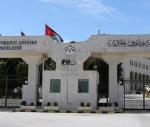You are here
Industrialists want gov’t to revisit scheduled electricity hike
By Merza Noghai - Dec 31,2014 - Last updated at Dec 31,2014
AMMAN — Industrialists are scheduled to meet with Prime Minister Abdullah Ensour on Sunday after the Lower House received a memo from the Jordan Chamber of Industry (JCI) urging it to intervene in the scheduled rise of electricity prices in 2015.
At a meeting with the president and members of the JCI on Wednesday to discuss the issue, Lower House Speaker Atef Tarawneh said the House will ask the government to delay the decision or freeze it as oil prices have dropped by almost 40 per cent since it was announced, the Jordan News Agency, Petra, reported.
Amman Chamber of Industry (ACI) board member Fathi Jaghbir said Ensour is expected to meet with industrialists to discuss the matter on Sunday, noting that the industrial sector in Jordan already suffers high production costs and the increase in electricity tariffs will be detrimental.
In 2013, the government started applying a five-year plan that gradually increases electricity rates for most economic sectors by nearly 15 per cent in order to bring the state-owned National Electric Power Company to cost recovery.
“We are against raising electricity prices for all categories, especially the industrial sector,” Jaghbir said, claiming that power tariffs in neighbouring countries are 20 times less than in Jordan.
Noting that the Kingdom is signatory to the Greater Arab Free Trade Agreement and a member of the World Trade Organisation, he said such a decision would negatively affect the sector’s competitiveness.
“The industrial sector uses productive electricity to operate its machines, unlike the consumptive electricity used in houses for heating and other purposes,” Jaghbir told The Jordan Times in a phone interview.
He pointed that a barrel of oil cost $120 when the government decided to increase electricity prices, while now it is around $60, a price that merits a review of the electricity tariff hike.
“In 2012, almost 1,200 factories did not renew their compulsory subscriptions to the JCI, and in 2013, the number stood at 1,280,” Jaghbir said, noting that these factories either closed or moved to another country due to high electricity prices.
Most of these factories relocate to Saudi Arabia, Egypt and the Jebel Ali free zone in the United Arab Emirates, with some Jordanian investors moving their businesses to the Grayyat area in Saudi Arabia where production costs are lower, according to the ACI board member.
He also noted that Israel recently reduced electricity prices by 20 per cent for the industrial sector, while in Germany the electricity tariff for the industrial sector is half the tariff for households.
“The security the Kingdom enjoys in a crisis-hit region is not enough to attract investments; the government should provide more facilities to foreign and local investors,” Jaghbir underscored.
The Egyptian and Turkish governments, he noted, pay factories 8-12 per cent of the value of their exports in cash, due to the important role these industries play in increasing hard currency reserves and employing local workers.
The Kingdom’s industrial sector directly employs around 250,000 workers in its facilities, and also provides 250,000 indirect jobs for supportive professions such as handling and transportation.
Related Articles
Prime Minister Abdullah Ensour on Saturday said his government is not targeting the industrial sector, which employs around 250,000 Jordanians who support more than 1 million people.
Industrialists are scheduled to meet next week with Prime Minister Abdullah Ensour and several ministers to discuss the sector’s challenges, according to sector officials.
A meeting between Prime Minister Abdullah Ensour and industrialists slated for Sunday to discuss the effect of increasing electricity prices on the industrial sector was cancelled, a member of the Amman Chamber of Industry (ACI) said.
















